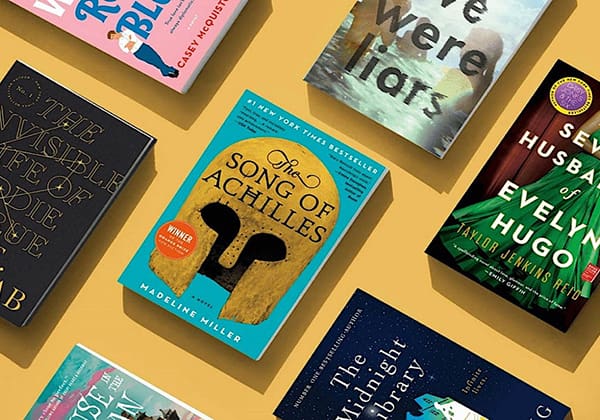People love to see themselves categorised — whether it be the neat boxes of an Instagram grid, the four-letter acronyms of the Myers-Briggs personality test, or the self-gratifying dot points listed under your Zodiac sign; we love to see ourselves oversimplified so that knowing ourselves doesn’t seem like such an elusive task.
Recently, this approach has wriggled its way into the reading community, called ‘Bookstagram’ or ‘BookTok,’ depending on what platform you engage most with. The categorizing of books is nothing new — the very notion of ‘genres’ has leaned itself to much cultural classification, but now we see people categorize themselves into these genres. I say people, rather than readers, because an underlying trope of these factions is a superiority complex that treats books as cultural capital. Depending on what cultural capital one wishes to spend, different books can be read, photographed, and discussed. For example, I am very much a part of the ‘sad girl book club,’ reigned over by the likes of Sally Rooney, Ottessa Moshfegh, and Donna Tartt reign. I boast that I’ve read the top 10 books on Goodreads’ Women vs The Void: female protagonists contemplating the banality of existence list, and I frequently show my partner TikTok hauls of ‘hot girl books’ that also adorn my shelves.
There is nothing sinister about recommending books, of course. Goodreads, which enjoys 90 million members, is built entirely off this premise. However, as Kat Smith wrote in the Guardian, “quantifying, dissecting and broadcasting our most-loved hobbies sucks the joy out of them.” This broadcasting has become commodified, led by reading influencers such as Jack Edwards who sports over 700,000 Youtube subscribers.
“In the age of sharing via social media, the private act of reading has become public and performative,” writes Elizabeth Bennet in her 2018 essay When Did Reading Books Become So Competitive?, and what better reason to perform than to gain access to a group where buying and reading books allows one to belong?
Of course, some complications do arise. Using literature to curate one’s personal brand in the same fashion we use “designer bags,” as Bennet writes, fundamentally changes the deeply personal act of reading. In a world where we boast our sleeping habits, it’s not surprising that reading has become part of consumerist culture and the way we market ourselves. On numerous occasions, I have imagined what my social media profile would look like if I became a ‘Bookstagrammer’ — what books I would advertise as my favourites, and the reviews I would give to the new literary fictions.
As Marian Bull uncovers in her 2021 Vox article The Complicated Reality of Doing What You Love, “after industrialization bifurcated life into the realms of work and leisure, hobbies appeared as something ‘productive’ for workers to do with their newly minted chunks of free time.” I often think that I read to understand the world, but perhaps I read so the world can understand me. By engaging in the newest bestseller that vicariously unpacks the mind of eccentric and idiosyncratic characters, I reflect upon myself in relation to this new avatar of human personality. I want to say things about this book, like “I loved its use of epistolary form” (as I do for Ocean Vuong’s On Earth We’re Briefly Gorgeous) or “it inverted the homewrecker trope so skillfully” (Raven Lelani’s Luster), but most of all, I want the book to say something about me. And I want an audience to shape a caricature of me by the books I read and review. But, as Bull notes, monetizing hobbies “risks turning [them] into even more of an illusion, a mirage of leisure that quickly turns to obligation.” If I am obliged to tell this audience what I think, then how can I formulate thinking without the image of circular profile pictures and heart reacts? Who am I thinking for? Being able to negate this is what Bull calls the ‘dream’: “unfettered commitment to externalizing our innards without concern for any gaze but our own.” And as much as I yearned to be a popular book influencer who received Sally Rooney’s new Beautiful World, Where Are You? before its publication, I think I would rather keep this dream alive.
If I am what I read, then I am that ‘girl v the void’ list on Goodreads. I am filling that void with books, lending a few out, but ultimately keeping the lines that I underline a secret so that the reason I fell in love with reading — namely the beauty of language — will speak to me in a way I cannot speak to others. I dog-ear my pages and scribble all over my books because they are mine. As Rooney writes in her new book, “the novel works by suppressing the truth of the world — packing it tightly down underneath the glittering surface of the text.”
When viewing the world in miniature, I do not want to shrink with it.





